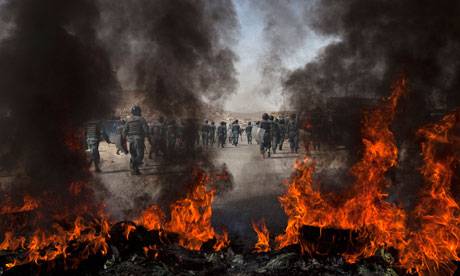The attack in Helmand on a gathering of Afghan Ulema Council by the Taliban on Tuesday resulted in seven deaths and multiple injuries. The Afghanistan Ulema Council is an advisory body to the government of Afghanistan and issued a controversial statement in March, regarding the status and conduct of women. Its views were severely criticized in Afghanistan by the moderates. A female member of the Parliament, Fawzia Koofi, commented that the religious council ruling seemed to be the beginning of “a process of Talibanisation” in Afghanistan.
A parallel can be drawn of this body in Afghanistan with the Council of Islamic Ideology in Pakistan which is a constitutional body, though created for a limited period of ten years yet still functioning, ostensibly without any extension in its life by the parliament. The Council in Pakistan also keeps issuing more or less the same kind of rulings regarding women’s status in a Muslim society on the age of marrying the female members in a Muslim family. The religious politics in Afghanistan seems to in flux, but here in Pakistan, the comparative lack of conflict between the high echelons of clerical power could mean that all religious elements are on the same page. An alarming thought. It is astonishing that the Taliban have not spared the members of such a conservative body, which professes the same religious thought as that of their own. It also reflects how myopic, stringent and violent they can be in future, while sharing the decision-making role in a state. The government in Afghanistan is looking for such a set-up and holding talks in Qatar with them.
In the light of the extreme rigidity in almost every walk of life, complete denial and rejection of modernity and space for other viewpoints, it would be better if the terms and conditions of any truce be finalized in much more detail than is usually done in such agreements. The Taliban and their likes in both Afghanistan and Pakistan have a history of going back on their words of commitment in the name of religion by interpreting it differently and getting divided into splinter groups. Historically, these splinter groups continue the violence in a rather more extreme fashion while some of their former partners share the power with the reigning parties. It is expected that the negotiators will keep these realities in the back of their minds and enter into a settlement, which is figured out in terms which do not give them a chance to wriggle out of any commitments easily.
Thursday, April 18, 2024
Power And Violence In Afghanistan

Mehwish Hayat says she would like to work with Aamir Khan
9:59 PM | April 18, 2024
'That'll be awesome,' Rohit Sharma on idea of Pakistan vs India Test series
9:17 PM | April 18, 2024
Turkiye commends Pakistan's efforts in fostering regional peace
9:03 PM | April 18, 2024
CM Maryam's security squad hits biker to death in Narowal
9:02 PM | April 18, 2024
Hafiz Naeemur Rehman sworn in as new emir of Jamaat-e-Islami
8:54 PM | April 18, 2024
Hepatitis Challenge
April 18, 2024
IMF Predictions
April 18, 2024
Wheat War
April 18, 2024
Rail Revival
April 17, 2024
Addressing Climate Change
April 17, 2024
Justice denied
April 18, 2024
AI dilemmas unveiled
April 18, 2024
Tax tangle
April 18, 2024
Workforce inequality
April 17, 2024
New partnerships
April 17, 2024
ePaper - Nawaiwaqt
Advertisement
Nawaiwaqt Group | Copyright © 2024





